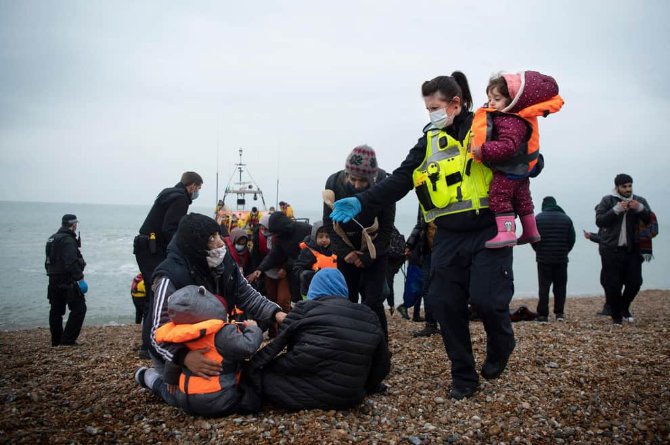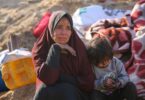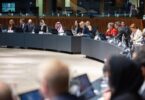Chris Doyle
Another war. Another disaster. Another series of desperate evacuations. Another bolted door in the face of desperate refugees. How many times in recent years have the major international actors desperately tried to evacuate their own nationals from a war zone while ignoring the inevitable refugee flows that result? Rival powers almost compete to get their people out first, with the drawbridge being well and truly raised for refugees who seek to join them.
The situation in Sudan guarantees another huge surge in displacement. Already, the UN is predicting that up to 270,000 refugees will flee Sudan, on top of the almost 5 million who have already been displaced. Let us also not forget that Sudan has been hosting more than 1 million refugees even though it is not a rich state. All this is part of a bigger picture where the number of forcibly displaced people worldwide now tops 103 million. At the turn of the century, that figure was just 18 million.
The UK is sadly becoming a leader in this category of anti-refugee states. Casting aside a proud historic record of giving refuge to those fleeing wars and persecution, the world’s sixth-largest economy is becoming one of the most unwelcoming. It has been a process. At the height of the Syrian refugee crisis in Europe in 2015, then-British Prime Minister David Cameron finally allowed a scheme to take in 20,000 of the most vulnerable Syrian refugees over five years. London was generous with its aid to Syrians, but only if they stayed in the Middle East. In fairness, only Germany and Sweden of the European powers opened their doors back then.
Who knows who will host Sudanese refugees in Europe? The British government bats off questions about them coming to the UK by declaring that it is focused on getting UK nationals out of Sudan. Some see that as a very parochial concern in the bigger picture of the disaster on the ground. British politicians appear to want to dodge the issue.
Yet, at some stage in the near future, Sudanese fleeing this conflict may end up crossing the English Channel on small boats. Many of those working on refugee issues highlight a worrying racist element to this. Last year, when it was white European Ukrainians, the UK – like other European countries – was all too happy to facilitate the arrival of refugees. It has taken in more than 117,000 Ukrainians in just over a year. Others have looked on enviously. The Sudanese are doing so now as their country is torn apart.
At the helm of Britain’s hostile policy toward non-European, non-white refugees is Home Secretary Suella Braverman. She is the darling of the far right of the Conservative Party. She lost no time in stressing that the government has no plans to open up safe and legal routes for Sudanese refugees wishing to come to the country. She suggested that Sudanese could approach the UN Refugee Agency should they wish to come to the UK, though that organization promptly rejected this as false. Braverman rejects any comparison to Ukraine, when proper safe routes were swiftly opened up, claiming it is a “very different situation.” Quite how was not explained. Sudanese refugees may not see the difference. When asked about Sudanese refugees coming to the UK in the House of Commons, Prime Minister Rishi Sunak just dodged the question. The pressure may build to such an extent that the government is compelled to announce some form of safe route for a limited number of Sudanese refugees. Yet, so far, ministers are doing everything they can to avoid even hinting at this prospect. If they can avoid it, they will.
It is all part of a very hostile and toxic climate that Britain and others have established for refugees, especially those from Africa, Asia and the Middle East. Those awaiting the processing of their asylum applications in the UK face horrendous conditions. One refugee worker told me many were now hoping they might even be dispatched to Rwanda to get out of the hellish existence they are caught in. Braverman wastes no opportunity in hammering away at “illegal” immigration to the UK, especially those coming by boats across the English Channel. Last week, she claimed that they “possess values which are at odds with our country,” and spoke of “heightened levels of criminality.” She has barely allowed the dog whistle to leave her lips. The government knows this is a hot electoral issue and it is currently trying to push an alarmingly dire and flawed illegal migration bill through parliament. Even former prime minister and fellow Conservative Theresa May has been scathing about it. For those in doubt, check out the praise of Britain’s immigration policy offered up by far-right Italian Prime Minister Georgia Meloni.
The UK is just one example. European powers, as well as the US, have gravitated toward this hostile environment policy toward non-white refugees, abandoning their moral and legal obligations. The contrast with Ukraine is so telling. It is fueled by the increasingly widespread domestic belief, often without foundation, that these richer countries are becoming filled up, but also that refugees bring different cultures and beliefs at odds with their own. The nastier end of the political spectrum depicts them as a threat; criminals coming to try to replace indigenous populations.
Opposition political forces cannot just sit on the sidelines and complain. The easy option is to resort to the politics of outrage and anger. This will not help the refugees. The massive surge in the number of refugees requires a major policy debate that acknowledges that many host societies feel overwhelmed, and that doing nothing will play into the hands of the racists and the far right. It means understanding that allowing never-ending conflicts to continue without resolution has major consequences. It means understanding that the richer world cannot just leave the poorer nations to host and care for the overwhelming majority of displaced people. It means addressing the deep-rooted drivers of displacement rather than ignoring them.







